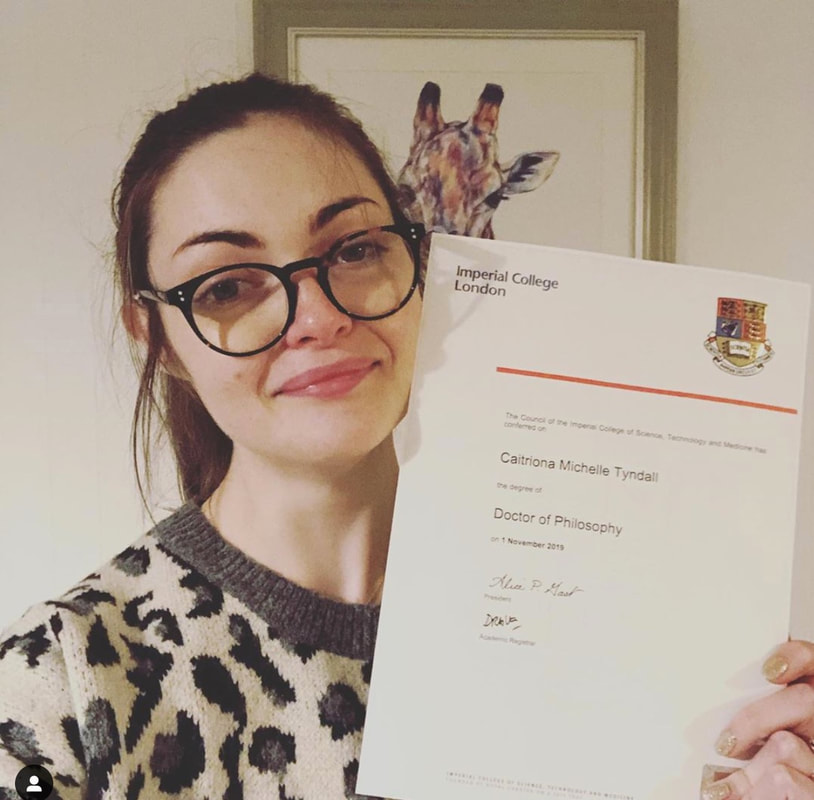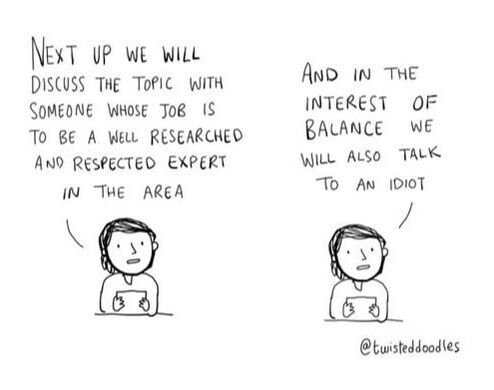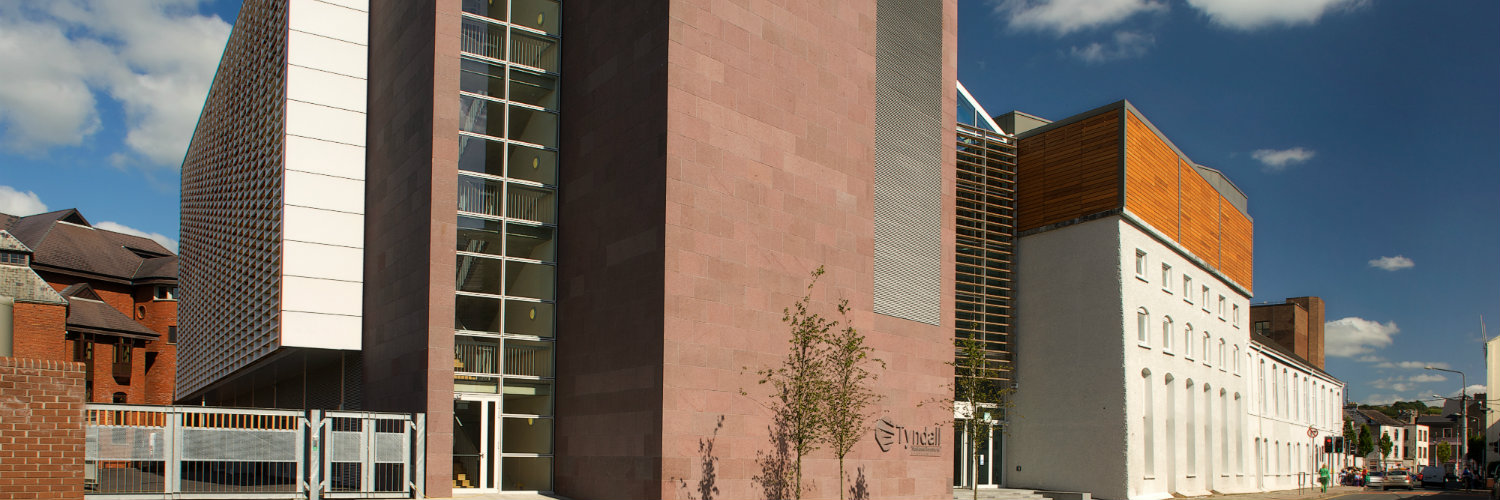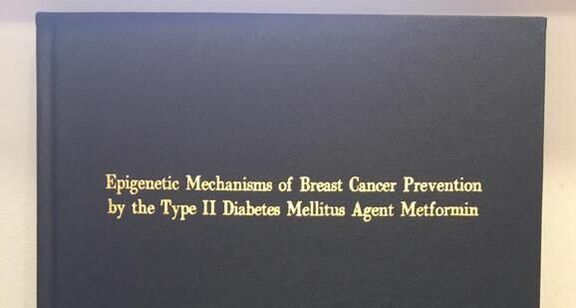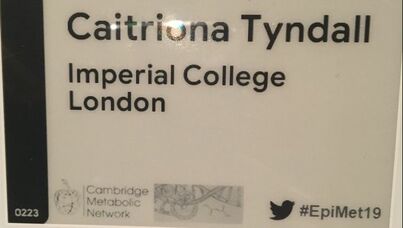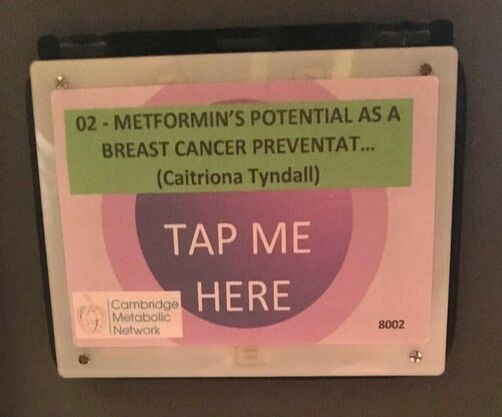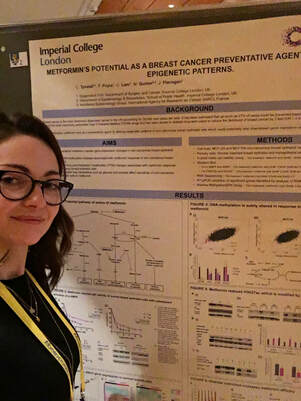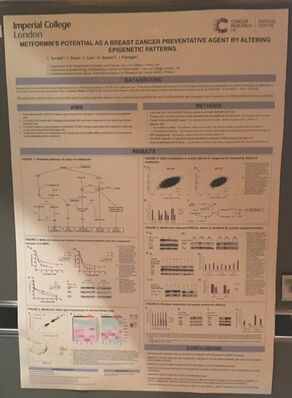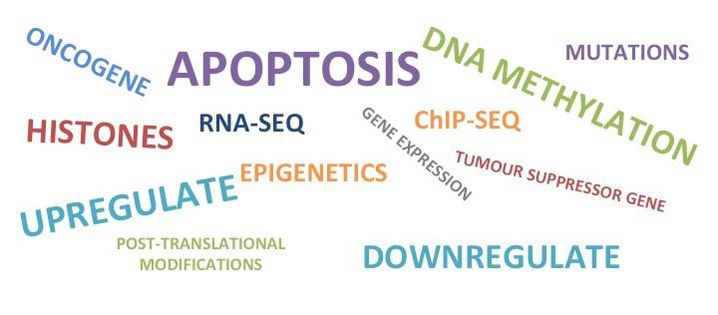|
Hey I got my doctorate! In the mail! My conferral is in May (on a Wednesday evening in London...useful) but I am officially a Doctor! Wooooo! Not a useful doctor in terms of you know treating medical issues BUT I earned the ability to say "Yes I am Doctor" at every moment.
3 Comments
Hello! It's been a while guys I know. I've missed you. I honestly haven't felt the urge to post recently but I thought I would come back and go through why I chose to trial my current job.
What is Public Engagement and Education (EPE)? The clue is in the name. EPE is the umbrella term to describe how people with the knowledge of something share with people who are not in the know. That simple. The aim is to create a dialogue between researchers and everybody else in order to share knowledge. I work as an EPE officer - I basically facilitate this dialogue. I report on how successful these interactions are, evaluate how we can do it better and help make that dialogue better, Fun fact - John Tyndall is quoted as saying "Knowledge once gained casts a light beyond its own immediate boundaries". His (possible) distant relative said 200 years later "Your research isn't for you, it's for everyone else" - Caitríona Tyndall (hey that's me!). What is an Engaged Researcher? Again clue is in the name. These are researchers who (surprise) engage with non-researchers. How do you become an engaged researcher? This funnily enough is suuuuuper simple. You ready? When you do something you stop and you ask yourself "How does this affect the average person?". That's it. To start on the journey of being an engaged researcher you just need to think about who this will impact. Why? Because once you start thinking about the person you start thinking about HOW you tell this person! You can put yourself in their shoes and think "What do they know now?" and "What do they need to know?". Case in point is the existence of this blog. I worked on epigenetics, I wanted people to know about epigenetics (because I LOOOOVE epigenetics) so I created a platform for me to explain what epigenetics is. And people (read: you guys) read the blog. BOOM! Engaged researcher! I have engaged with you about my research and you have (hopefully) learnt something. You're welcome. Also thank you! Why? Because I learnt a lot doing these blog posts. Most important - how to edit my writing. Critical for thesis writing. Also - how to explain myself confidently. Critical in PhD vivas. Basically I've learnt to be a better communicator. It's pretty awesome. So why is it important? Hey what would happen if you bought a ready made meal but it didn't have the ingredients on the back? Would you eat it? Depends on what it was called - is the name intuitive (chicken) or vague (meat). You need more information to make that decision. Now what if I told you that I'm digging up your back garden to improve your wireless internet connection? How does that intuitively make sense? Honestly if you know nothing about optical fibres it does not make sense. However with a little bit more information this will totally make sense! Fibre optical cables are glass fibres that you pass light down. The light bounces but doesn't escape. This is an incredibly efficient way to transfer data over long distances. The fibre optic cables connect to a receiver which uses sound waves to transmit your wifi signal over short distances. This is because sound waves are not very efficient as they lose signal intensity more than light. So if I'm trying to increase wifi connectivity in rural areas the most efficient way I'd to build more fibre optic cable pipelines to connect to the rural areas. This reduces the distance the radio waves have to travel making the wifi more efficient. And that is why I'm digging up your hydrangeas, Mary, so you can watch Alan Titchmarsh is HD. You're welcome. Essentially sharing information and being better at communicating is beneficial for everyone. Particularly gardening enthusiasts. So what have we learnt? Sharing is caring. Or to quote a really cool scientist (again) "Your research isn't for you, it's for everyone else." Dammit guys! We need to share what we know in a way that makes sense to everyone else.
I'm not having an existential breakdown don't worry. I've gotten a new job!
As you all know I found my PhD a tiny bit difficult (to put it lightly). I also LOVED doing outreach and research engagement. So I decided once I returned to the home land from the UK and had submitted my thesis I would change up my career direction. I wanted to inspire the same passion I have for research engagement in other scientists. So I became and education and public engagement (EPE) officer. Where might you ask? Why Tyndall National Institute in wonderful Cork City. What does Tyndall do? Physics. It's a little left field, out the gates and into traffic I know. Let me take you through it. What is an EPE officer? An EPE officer is the person who helps scientist take their research and make it more engaging and understandable so it can be shown and discussed with the general public. I organise events, tours of Tyndall and learning opportunities for various groups of people. For example public events such as Cork Culture Night or Cork Science Week are for the public of all ages. We need to show off what Tyndall does in a way that will resonate with not only children but parents and older people. Tyndall tours can involve the general public or school groups/university groups/stake holders. Small groups come into Tyndall and see the facilities and get a more immersive experience of what Tyndall does. Learning opportunities come in many forms such as organising researchers to visit schools to run demonstrations about the science they do. Or having transition year groups come into Tyndall to gain hands-on experience. I also organise an internship programme for university students where they come for 10 weeks, they go into the labs and do a project and they also get lectures/training workshops etc. Do I do any of the science? No! I know nothing about physics. But that doesn't matter. My job isn't to know the science but to put scientists and the public together in order to share knowledge. It's very difficult for people to really see the point of theoretical physics when they haven't talked to a theoretical physicist and see the impact of their work. I facilitate this meeting while also making sure it's fun, immersive and engaging. What is Tyndall? Well first of all Tyndall is a person. John Tyndall (don't know if I'm related) is a famous physicist who was the father of fibre optics and investigated light diffraction. White light is made up of lots of different colours which make up the visible spectrum we can see. When light hits an object it bends (diffraction) causing the different colours to separate. When you see a rainbow that is light diffracting through rain drops. This causes the light to split into all the colours we can see. All the colours of the rainbow. Tyndall National Institute does two main things - electronics and photonics. I work with the photonics group. Photonics is the study of light, made up of particles called photons, and how we can use this light. Photonics pretty much makes up your everyday life. From the microLEDs in your phone screen, to fibre optic cables which bring you broadband to medical devices such as heart monitors and oxygen monitors. And this what Tyndall does. It makes these devices. It researches how we can make better devices, how we can store data more efficiently, communicate more effectively and monitor and treat diseases less invasively. It's pretty incredible really. So this is what I am doing for the next year. I will probably return to cancer research but whether that's as a scientist or an EPE officer or something completely different I don't know. The future is bright!
On Friday 19th I defended my PhD thesis. Here's how it went.
First of all what is a viva? A viva a basically a conversation with people (examiners) who have read your thesis. They give you comments, ask questions and verify some information. At the end of the viva the examiners discuss amongst themselves their views and decide corrections that need to be made to the thesis before it is finally submitted as a completed piece of work. You can get three types of corrections:
My viva: So I had three examiners in my viva. Depending on the country you're in and the university you're in this can change. Imperial usually has two examiners but one of my examiners needed a supervisor because this was their first viva. Anyway! Only two of the examines actually gave their opinions and corrections. They were both experts in their fields - breast cancer and diabetes & cancer epidemiology. They would have some knowledge of parts of my thesis but I was the expert in my subject in that room. The idea wasn't to judge but to help. I wasn't nervous getting up that day or going in but just before I started to get really really anxious. Like about to vomit anxious. Luckily I did not do that, particularly because I was sitting beside one of my examiners waiting for the others to arrive. Awkward. The viva itself was actually fine. The most interesting thing was even though my examiners came from two different areas (one would work in a lab and one would be statistics based) they both pretty much had the same corrections. I was too over-enthusiastic and I didn't fully tease out my statements. Basically I would say "my data showed this and I've cured cancer". It became a running joke. I completely understood because when I re-read it before the viva I was like "what am I even saying!" The viva lasted 2.5 hours in total which is pretty good (if I do say so myself) and I'd say a good 30 minutes of that was me frozen in thought. You see if you haven't read already I have depression. And the major problem of my depression is cognitive. I find it difficult to form and maintain thoughts. So I will stop mid sentence and be completely lost about what I was saying or how I got there. I also find it difficult to take in information, process it, develop and answer and return an answer quickly. It drives Liam mad. It drives me mad. So while I understood the questions my brain (like anyones after a heavy night drinking) was sluggish and just took extra time coming up with an answer. I gave the answer correctly it just took an extra 2/3 minutes. Luckily my examiners were informed, mostly because I had finished my PhD early due to mental health problems, so they were very understanding. I almost cried a few times but I managed to hold myself together. So that's it. I passed my viva, got some minor corrections which need to be finished by the 19th October 2019 and I get my doctorate in the post. I mean I am a PhD since I defended my thesis so the rest is more formality than anything! That's right! I'm Dr. Tyndall now! Don't ask me to help you with any medical conditions but listen if you need a western blot done...go somewhere else I have PTSD.
Most of us have heard of the immune system. “Oh, I’m a bit tired today, my immune system is run down”. But how many of us know exactly what an immune system is. Or what is does! This post is going to go through it step by step and hopefully by the end we’ll all have a better idea. I have to say immunology (the study of the immune system) was never my strongest subject. We’re all learning today!
So, first things first. Your “immune system” is not one cell but a collection of many types of cells that work to together to protect your body. I will be going through each cell type and their function. Just as a note “white blood cells” are another name for your immune system. In your blood you have red blood cells – which transfer oxygen around the body, plasma – which is the liquid part of blood that carries all sorts of things like hormones, glucose etc. and white blood cells – which are your immune cells. Also, white blood cells are called leukocytes. (This is why I find immunology difficult…too much to remember). So where are your immune cells made? The bone marrow! Immature immune cells (basically immune cells that haven’t learnt what they should do yet) are made in the bone marrow. They either do basic schooling there to learn what to do or they go to fancy school in the pituitary gland to get a full education. More on this later. There are two types of immune system:
Your innate immune system is like a security guard walking around a museum. They are there to keep an eye on all the cells and deal with any small disturbances (such as the odd bacterial/viral cell). The innate immune system is made up of a number of cells. They are constantly going around your body patrolling. Innate immune cells can recruit other cells to the site of invasion and can also raise the alarm for a more comprehensive immune response. They do this by releasing signals called “cytokines”.
Here’s the list: Mast cells: these cells reside in connective tissue and take part in wound healing. Phagocytes (eating cells)
Granulocytes
Natural killer cells: these cells kill normal cells that have been taken over by virus etc. Gamma-delta T-cells (γδ T-cells): these cells are both innate and adaptive. Not much is known about these cells. Fun fact a PhD I know (Marina) studies γδ T-cells for cancer therapy. She took a blood sample from me and my γδ T-cells are really good at killing cancer cells.
A note on the immune system:
The typically immune response takes about 4-7 days to ramp up when the immune system has not seen the threat before. This is why when you have the flu it takes a full week or more to get over it. It’s also why you feel shocking. For the first few days while your adaptive immune system is metaphorically getting themselves together, the invader is running riot through your body. When your immune system has seen the threat before (in the case of vaccines or previous exposure) your immune response it way faster. It will typically take 3 days for the immune system to kick in.
Fun fact! There is a layer of fat across your abdomen called the omentum. It kinda looks like an apron sitting over all your vital organs. The omentum is full of immune cells (all kinds) all the time. When you get major surgery, the surgeon will wrap the area with omentum to help with healing. It’s probably one of the most interesting areas of fat in your body (to me anyway). Another fun fact! Surgeries like liposuction tend to remove “good” fat (like what the omentum is) while leaving “bad fat”.
Your adaptive immune system is more complicated. Your adaptive immune system is not always active. They don’t patrol around at all time. In fact, your adaptive immune system is like S.W.A.T. It is activated when there is a serious threat and provides the big guns (as it were) to deal with the issue. Your adaptive immune cells (called T-cells and B-cells) are made in the bone marrow. They then travel to the pituitary gland where they are trained. This is where antibodies and antigens come in.
Antibodies are on immune cells whereas antigens are on every other type of cell. It acts like a hand shake. A cell will “put out their hand - antigen” and the immune cell will “take the hand - antibody”. If the antigen is recognised by the antibody nothing happens, and the immune cell moves on. If the antigen is NOT recognised by the antibody, then the immune system responds. Innate immune cells can present the antigens that were on the invaders they engulfed and this attracts adaptive immune cells to the site of invasion. But the immune cells need to learn these handshakes. The best example is blood types. There are many blood types – A+, A-, B+, B-, AB+, AB-, O+ and O-. These letters are antigens. So in a person with A+ blood type it means that on their red blood cells there is an antigen called A, whereas a person with A- doesn’t have the antigen called A. So in normal circumstances an A+ person will only have A+ blood cells. The immune system sees this and is fine. But if that person got a transfusion with say A- blood, the immune system will try to do the “handshake” but the A- blood cells won’t be able to. This is when the immune system goes into defence mode, destroying all the A- blood cells. This is called graft vs host disease and happens a lot with blood transfusions and organ donation. Another example is vaccines. A vaccine is the antigen of the virus without the harmful parts. It allows the immune system to learn that the “handshake” is bad, which the adaptive immune system remembers. So if the real thing comes along the adaptive immune system can jump in immediately. Here’s the list (lymphocytes):
Interesting fact: your immune system will also get rid of cells that have “gone bad”. Basically, if they are displaying abnormal behaviour, they can’t do the handshake, then they’re outta here!
Another interesting fact (I’m full of them), a fever is a tactic of the immune system. Most cell systems are very sensitive to temperature. A fever is a case of “sacrifice a few to save the many”. Your body temperature soars above the normal temperature for viruses, bacteria and your own cells. This helps kill off the invaders. You will lose normal cells and immune cells (and feel horrendous in the process) but the threat is gone! So yay!
The fun (?) part. Diseases associated with the immune system.
Numero uno! Allergies! When you have an allergic reaction, it is your immune responding to what it considers harmful. Now I really don’t know what is hugely harmful about pollen, egg yolk, latex, avocado and chestnuts (some of my wonderful allergies) but sure look. That’s what my immune system thinks. Now the degree of allergic response can go from mild (hives, vomiting, flu-like symptoms etc.) to life threatening (anaphylactic shock and death). Second! Auto-immune diseases! These really is what it says on the tin. You know we talked about the handshake your adaptive immune system learns to distinguish your cells from invading cells? Well in the case of auto-immune diseases your adaptive immune cells are…well…not very good at learning. They attack your own cells. Third! Cancer! Namely leukaemia (AML, CML and CLL), non-Hodgkin lymphoma, Hodgkin lymphoma, multiple myeloma. I will do a more comprehensive article about blood cancers, but these are all cancers of different immune cells. Fourth! Cancer! Oh yes, your immune system can play a role in ALL cancers. Initially your immune system won’t recognise that cancer cells are bad and the cancer grows. Eventually the immune system catches on and tries to get rid of the cancer. But hey! Cancer is smart and uses Tregs and other regulatory immune cells (like tumour associated macrophages - TAMs) to calm the immune response. They can also change what antigens they present. And then they infiltrate the immune system (like spies) and turn the immune system within the tumour to their side. This helps the cancer grow, while also telling the rest of immune system to “move on, nothing to see here”.
The best part! We can use the immune system to fight back! Take that cancer!
This is what we call immunotherapy. We use the ways cancer manipulates the normal immune system and re-manipulates the now cancer immune system (is re-manipulates a word? Anyway you get me). There are a couple of ways this can be done. 1 – you shut down regulatory T-cells, basically preventing cancer from stopping your immune system 2 – you remove the antigen “handshake” on the cancer cells. This prevents the cancer cell from pretending it’s normal, allowing the immune system to kick in. The problem with these two methods is it can affect your whole immune system, not just the one targeting cancer. This opens a can of worms in terms of knock on effects on your normal healthy cells. You do not want that! But there may be a way of killing cancer and sparing your healthy cells. Some of your adaptive immune cells can be taken out of your body (via blood donation) and re-taught how to kill cancer. Specifically, your cancer. The white blood cells can be isolate from the rest of the blood and “primed” to know what handshakes your cancer is presenting. The army of cancer killing immune cells is the grown so there are enough to do the job and put back into your body. These primed immune cells go directly for the cancer, killing it while leaving your healthy cells to rejoice! Throw a parade! This therapy is still in trial phase but provides promise for more effective cancer treatment. If you have any questions or comments, please don’t hesitate to contact me. If I have gotten anything wrong or missing information, please let me know!! It’s important we all get the correct information. Just as a quick update!
As of 2.41pm Thursday 21st February I am writing my thesis! It's going. Writes itself really...
I wanted to do a quick post about what it means to be a PhD, what you have to do and how you become a doctor. Not a useful doctor mind but heck you've earned that Dr. in front of your name you tell the world!
I know I should have done this in the beginning but hindsight people! What is a PhD? You can get a PhD (or Doctorate in Philosophy for those nerds out there) in pretty much anything. If you have the will, the money and a supervisor you get that PhD in the history of snakes in Ireland. The majority of PhDs you'll hear about however will be in science subjects. Maybe some arts subjects (literature etc.) but the effort required to get a doctorate vs the usefulness to your future career means it's typically science-y types doing them. I am very happy to be told about any PhD's readers have done in any subject. How Long is a PhD? A PhD usually takes between 3-4 years however that changes wildly from country to country. For example in Scandinavian countries you are required to publish in a peer reviewed journals to be eligible to sit your viva (more on that later). In the UK and Ireland you are not required to publish. In the USA and Canada PhDs can take 5+ years and again some Universities will require you to publish before you get your doctorate. Again I don't know the rules for every country. My PhD is from Imperial College London and they have a max 4 year policy (unless there is some MAJOR need to delay your studies e.g. pregnancy). I am not required to publish. So my PhD is 4 years. Who pays you? There are a few ways of paying for your PhD. The usual way is by external funding. This can be from a charity or research council. Applying for funding requires a lot of jumping through hoops and a solid research proposal. The funding process is HIGHLY competitive and a lot of great ideas get left to the wayside. But there's a finite amount of money available and funding bodies need some sort of guarantee that the information generated will be useful for the future. If you feel this is unfair donate to your charity of choice if you know they fund PhDs. This is not an ad but CRUK runs a PhD sponsorship scheme. Another way of doing a PhD is self-funded! Oh yeah. You find the funding yourself or you pay yourself through. I have also heard of supervisors getting funding and they hire PhD students and pay them. It's slightly different from external funding because in external funding, it's awarded to the PhD not the supervisor. Your funding also decides how long your PhD will take. If you have 3.5 years funding you realistically should be finished in that time. What is the funding used for? There are three areas your funding goes into:
What does a PhD student do? I have to say this (and it always gets me) while we may be considered students we ARE NOT students. It's like a job except not 9-5 and definitely not paid well enough. I never had to go to lectures and I never did exams. I could choose to attend lectures (for example I went to some MSc in Epidemiology lectures to learn about a subject I didn't know about). My department also ran seminar series and guest lectures for the whole department but again not mandatory. What I did was work 70+ hours a week in the lab and doing bioinformatics until I got some results I could write into a cohesive story. However I will note I except we are students when it comes to student discounts! You gotta use what you can! How do you get your "PhD"? You need to complete a set period of work (3-4 years) which you write into a thesis (in Imperial you do a max of 100,000 words). You then submit this thesis for evaluation and do a viva. A viva is a defence of your work. In my case, I will submit my written thesis to two examiners (an internal and external examiner) who are familiar in my field. They read the thesis and then we come together to discuss the results. I am asked questions and I have to defend my choices. It can take between 2-5 hours to do a viva defence. In other countries your defence is in front of a panel and is open to the public. So you could be standing up in a room full of people (grannys, children, your neighbour) and have to defend your thesis. Usually this happens in countries where you are required to publish. You are already peer reviewed so the defence is more general. One you complete your defence you are given corrections. These can be minor, for example asked to fix typos or a section of your written work, or (god forbid) major corrections, which usually require you to return to your lab/office/hell to re-do work or do more work. How do I get a PhD? The best advice I can give you is be open. There are a few ways to go about getting a PhD. (1) You can pick subject(s) you want to study (I chose epigenetics and cancer) and research all the main people in this field. Contact these people and explain that you would love to do a PhD with them and would they have the ability to come up with a research hypothesis and apply for funding. (2) Doing an internship/research assistant role in a lab you want to do a PhD in. You will have the ability to show your skills and know when the PI (principle investigator) is applying for funding etc. (3) Go on www.findaphd.com/ NO JOKE! This is how I did it, I went on Find a PhD and searched my keywords. I found a PhD I liked the look of, got an interview and hey presto I got a PhD. Most labs will try to fill the position internally first (see point 2) but if they can't find a suitable candidate they will advertise publicly. Is a PhD hard? Yes. Next question. I joke. A PhD is hard as hell. It's meant to be. But it's also meant to be rewarding and you learn a lot, not just about your subject but about working in that environment and with other people. What else do I get from a PhD besides a doctorate? That is completely up to you. You make your PhD what you want. Some people will just do their own work and finish. I however did not do that and I encourage anyone thinking of doing a PhD or doing one to use your time. Teach, whether you do GTA work with undergraduate students or mentoring masters students. Teaching will give you so much in return (not just extra cash - always useful) but also new ways to communicating with others, new ideas and most importantly HELP! I have had three masters students throughout my PhD and if I didn't I wouldn't have the results I have. If you give time and experience to them, they will reward you. Trust me. I also did A LOT of research engagement, probably the most out of any of my peers. I literally said yes to every opportunity that came my way. Why? Because chatting to people about science is AWESOME! I mean come on I'm doing a science blog. It is just so rewarding. I also advise doing courses if you can, I participated in a MSc in epidemiology and did a number of Professional Skills Development Courses (like how to write a literature review, how to make a poster etc.) which really helped my writing and communication skills. As a PhD you are a part of a University or Institution. Use those connections to make the most out of your PhD. Should I do a PhD? Honestly I don't know. That is for your to answer. From my experience, if I had been honest with myself I would've probably not done a PhD. I was not and still am not mentally sound (in my opinion) to do a PhD. You require strength and determination. You will be knocked down a lot but getting back up and ploughing on will stand to you. Having said this I don't think anyone would've gotten the results I did or adapt their work the way I did. What you produce is unique and that's worth it. If you want to do a PhD and you really like your subject, do a PhD. Also we need more scientists in the world so if you're a science student wondering if you need to do a PhD PLEASE DO ONE! WE NEED YOU! Did that sound desperate? What does your PhD mean to you? I am not sure how to answer that question really. Stupid since I'm the one who asked it. I have a had a lot of struggles throughout my PhD. Struggles which as sadly not unique. I went back on anti-depressants, I had to deal with an eating disorder and I may or may not have tried on numerous occasions to hurt/kill myself. It sounds dramatic but mental health issues in PhDs are not uncommon. You are under a huge amount of stress and have to cope with doing things mostly on your own. This information shouldn't deter you from doing a PhD. I had mental health issues before I started. I may have struggled and I did have to stop my lab work early because I couldn't cope but I also would go back and do it again. I would do it better (obviously) but I would do it again. Doing a PhD has shown me (1) how smart I actually am, (2) what I am passionate about and (3) how strong I am. Plus who doesn't want to say "I'm a doctor" when asked on a plane if there is a doctor on board. Fair enough you do have to add that you in no way are you a medical doctor but god dammit you earned the right to say it! So that's it! Again if you have any questions please don't hesitate to contact me.
Advances at the Interface Between Metabolism and Epigenetics
Cambridge UK 16th - 17th January 2019
This year I have the pleasure of attending the "Advances at the Interface Between Metabolism and Epigenetics" conference hosted by the Cambridge Metabolic Network in Cambridge, UK. This two day conference brings together scientists from all backgrounds with two things in common - an interest in metabolism and an interest in epigenetics. Funnily enough these areas interact a lot (which I learnt more about at this conference). When you focus on DNA methylation or histone modifications you forget where these modifications come from. Metabolism as a whole generates small molecules which can contribute to methylation (methyl group) and acetylation (acetyl group) to name a few.
What I have found most interesting about this conference is it's not just focused on cancer. While that's my research area (sort of) I have been to many (many) cancer related conferences. The focus is always "what does this mean to cancer?" whether we are discussing prevention or diagnosis or treatment. At this conference I am learning about the metabolism-epigenetic interaction purely out of interest in these interactions. Now I'm not saying I can't take this information and apply it to my work (which I will be...thanks #EpiMet19) but it's nice to learn something just to learn something. The conference is two days long and covers a diverse range of sessions including:
Something else I found interesting (and bizarre) was the name "tags". The name tags were electronic and allowed you to "tap" another tag and share information. It also allowed you to vote on the posters you liked (kinda like a nerdy X-Factor). This is the brain child of Blendology (blendology.com/). This is a brand new way of building networks with fellow researchers. A very cool idea however you can't just "tap". It's more of a whack. This is slightly awkward with a stranger you just met!! Also do you really want to say "can I tap you?" or "do you want to tap?" ??? So all in all a really interesting conference. OH! I presented a poster (again) on my wonderful work. I didn't feel there was a huge amount of interest but sure look! Metformin is an interesting drug with so much potential! If no one is interested it's their loss (this is what I'm telling myself as I weep into my poster because no one likes me! I joke.......sort of). To be fair I was in a bit of a dark area (as you can see in the photos) so maybe that's why.....
Jargon can be a big barrier between people from different career areas. The most obvious barrier for me that jargon creates is between scientists and the wider public but I also find that within the scientific community jargon is still a massive problem. For example when I am chatting with my sister (an incredibly talented doctor) we still find ourselves getting slightly confused about certain words we'll say. We're both technically in the area of biology and medicine but there is still difficulties in communicating.
When you start off in any subject you are given words and definitions and eventually those words just become part of your vocabulary. It becomes so ingrained in your every day that you lose the ability to properly explain what you mean. Honestly try remember the real dictionary definition of a jargon word you use everyday. Hard right? Now imagine you're chatting to someone who has no basis in your area and you're trying to explain the jargon word. Even harder! Why? because every word needs context. And this is where the jargon becomes a barrier. My way of explaining a jargon word ALWAYS ends up in me using more jargon. You end up either getting frustrated and sounding like an idiot OR even worse you end up talking down to the person you're chatting to. So how do we combat jargon? Well first thing is to acknowledge you use it. The next thing is to identify key jargon words you would need to explain and practice how you would easily explain it. Easier said than done. For example: My scientific explanation: Cancer cells up-regulate expression of oncogenes while simultaneously down-regulating tumour suppressor genes. Many of these gene expression changes are driver mutations associated with specific cancer types. Now the tricky part is identifying how much your audience knows before you remove the jargon. You have to ask yourself - do they know what a gene is? Do they know what expression is? If the answer to those questions is yes then you're in for an easier time: Cancer cells can change the normal expression of genes by increasing expression of genes that help the cancer cells grow/create energy/create a good environment etc. while at the same time they decrease the expression of genes that would prevent the cancer cells from staying alive for example cancer cells turn off control of their growth so they can grow however much they like. Specific cancer types have gene expression changes in these pro-cancer and anti-cancer genes which can start the normal cells becoming cancer cells. These are called driver mutations because they drive normal cells into cancer. If the answer is no you have to think harder about what you say: Cancer happens when normal cells stop acting normal. They start to grow uncontrollably by making loads of energy and stopping themselves from dying. The way a normal cells becomes cancer is different in each cancer type and knowing these differences helps us treat cancer. The trick here is to not try to explain every word but you completely change your approach. The three paragraphs all mean relatively the same thing. Combatting jargon requires some practice but once you get the hang of it, it definitely becomes easier and easier. But why is it important? Well for a purely selfish reason it makes you better at writing scientific papers, communicating with your colleagues etc. For a less selfish reason it gives you an opportunity to share your knowledge with people who wouldn't necessarily have access to it. You can help combat the myths surrounding your area such as cancer research (there is not one cure all for cancer that doctors are hiding). You can also help people dealing with cancer understand what is happening to them or their loved one. People want to learn but it's frustrating when you don't know the language. There are a lot of pros to doing more to combat jargon and being more engaging with the public. Whatever area you're in, give it a go. You might find you actually like the challenge.
As I said before in a previous post a couple of weeks ago (watch-this-space.html) I submitted a blog post to The Cancer Researcher-EACR Science Communication Prize. One of my submissions was shortlisted and has been published on their online magazine.
I wrote this blog post about research engagement and why it's important for scientists to engage with the public. We need to be better at discussing cancer and cancer research with a wider audience. Nearly everyone in the world has been affected by cancer in some way so everyone is interested in learning more. It's also a great way for scientists to be asked questions they have never thought of. Plus it's so rewarding to share what you do on a day to day basis. Find the link below: magazine.eacr.org/engaging-with-the-scary-public-why-we-need-to-do-it-and-do-it-now/ This can also be found on my External Work page: External Work |
AuthorMy name is Caitriona and I am a PhD student at Imperial College London, UK. Categories
All
|
